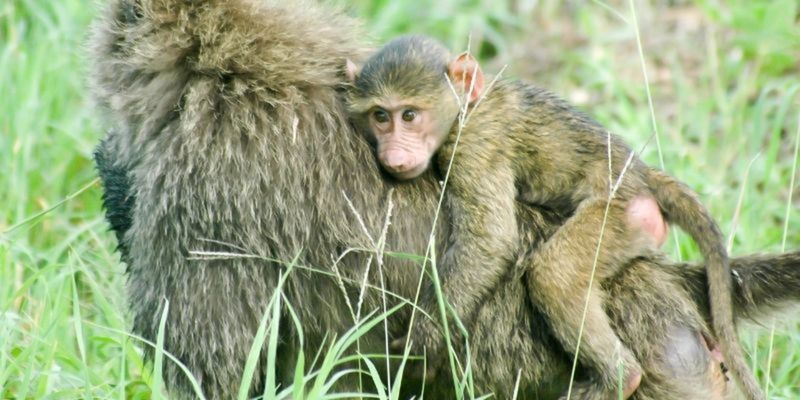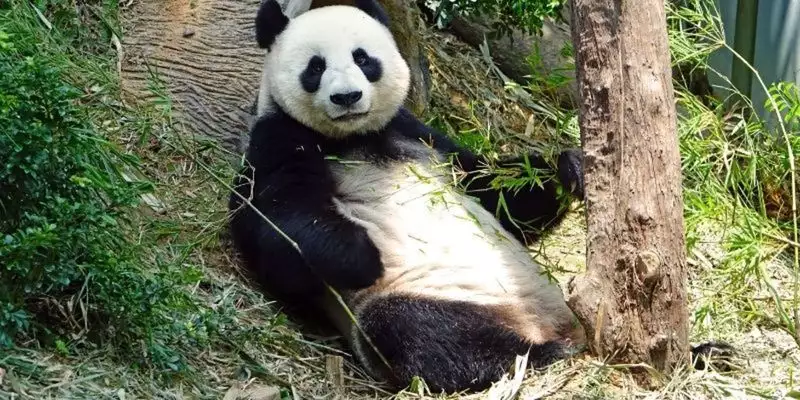Our world is full of life, from various species of wildlife to plants and humans. The existence of our eco-system is dependent on the life that grows and functions within it. Primates make up a huge part of our world, and if you are interested in the evolution and biology of primates, you can take steps towards an exciting and interesting career.
Continue reading to learn how the study of primates can help with conservation efforts and how you can gain the knowledge you need to make a real difference.
What are Primates?
Primates are mammals that come under a certain group, including:
- Monkeys
- Apes
- Humans
- Lemurs
- Lorises
- Tarsiers
There are over 300 species of primates and they are regarded as the third most diverse order of mammals after bats and rodents. The thing that combines the orders listed above is that they all have a large brain compared to the size of their bodies.
In addition to this, primates have plenty of strength in their arms and legs, as well as long fingers and toes that have the ability to grip. All primates have forward-facing eyes so that they can judge distance properly. Other distinguishing features including fingernails and dental patterns.
Through the study of primates, you will learn that these groups are not restricted to one part of the world. In fact, non-human primates usually reside across Central and South America, as well as southern Asia and Africa.

What is the Study of Primates Called?
The study of primates is known as primatology, and over the years, this form of study has found ground-breaking facts about the evolution, biology, and behaviour of primate orders. The focus is predominantly on non-human primates, but anthropologists, who study aspects of humans from past and present societies, use this approach to compare.
They are able to use the study of non-human primates to compare with the human condition, which has led to facts regarding the function and evolution of skeletal and muscular structures. There are vast similarities between human and non-human primates, such as their limb proportions and muscle development.
Non-human primates can adapt physically and behaviourally to living in the trees or on the ground, which is a similar trait within humans. Through laboratory studies and field observations, primatology experts realised that non-human primates have a higher level of intelligence and cognitive ability than first thought.
If you are interested in primate studies, you may want to pursue a career in primatology. The types of roles and responsibilities that you may have in this role include:
- Caring for non-human primates in zoos or domestic environments
- Observe the animals’ behaviours
- Study primate psychology
- Research primate culture
- Assess the biological backgrounds of apes and other primates that are similar to humans
If you are considering a career in primatology, then you will be interested to know what type of environments you will be working in. The settings are varied depending on your area of focus during your study of primates. For example, you could find yourself working in:
- Offices
- Laboratories
- Zoos
- The field
Can You Get a Degree in Primatology?
Some universities offer zoology degrees with a focus on primatology, but generally you can study a degree in wildlife biology, zoology or something similar to become a primatologist. You can, however, study a postgraduate Masters in primatology in the UK.
Why is Primatology so Important?
There are many reasons why the study of primates is important, with the predominant one being the protection of the species. The more we learn about primates, the easier it is to help conserve the species to ensure that they continue living and developing.
Conservation efforts are among the main benefits of studying primates because extinction is a problem facing plenty of species in the animal kingdom. The study of primates will help us maintain the survival of non-human primates, which is essential given that their demise in an eco-system could affect the lives of other animals too.
They often contribute to the lives of other animals given that they are adaptable and can live in mixed habitats. As well as conservation, primate studies are great for learning about social group dynamics given how similar to humans they are in terms of behaviour. Continuing the study of primates may even help us learn more about the human race.

How You Can Learn Primate Studies
If you want to channel your passion for primates into a career that helps conservation efforts, or if you simply want to expand your knowledge, then studying an online course will give you the expertise you need.
With learndirect, you study for a Primate Studies Level 3 Award (RQF) from the comfort of your own home! As you work your way throughout the course, you will learn the benefits of studying primates and gain a strong understanding of these incredible and vital species.
The course itself is broken down into two units, and below, we have outlined what you will learn in each one.
Unit 1: Primate Biology, Ecology and Behaviour
- The biological intricacies of a primate is essential to understanding primates and how they function internally
- Ecology refers to the relationship between organisms and the environment around them. In this part of your primate studies course, you will learn the principles of primate ecology
- Behaviours tell us a lot about an animal, and you will learn through your study of primates how certain species behave in situations and why
- You will explore the types of primate species and the differences between them
Unit 2: Primate Conservation and Management
- This part of your primate studies course is centred on managing primates in the wild, giving you an understanding of how these species can be cared for in their natural habitats
- You will go on to learn the principles of how best to manage primates in captivity
- Primate welfare is essential, and you will learn the techniques and methods that can improve the welfare of those in captivity
- The final stage of your learning journey will be to understand the principles of primate conservation
To achieve the Primate Studies Level 3 Award (RQF), you will need to gain 10 credits through online internal assessments, which will be issued at the end of each unit. One of our qualified animal tutors will assess your work and provide feedback to help you progress.
There are no deadlines for your assignments, so you can take the time you need to confidently complete your assignments. You have two years to complete your primate studies course, but you can complete it much quicker depending on your pace.
learndirect is the UK’s leading online learning provider, helping more than 4 million learners gain the qualifications they desire. We have helped students pursue their dream careers, all through innovative online learning. If you’re interested in primatology and want to embark on the study of primates, you can take significant steps with us.
As well as gaining a nationally recognised qualification, you will also benefit from:
- Flexible learning – You can study at your own pace, avoiding the restrictions of classroom learning
- Study anywhere – A computer/laptop and a stable internet connection is all you need! So you can study from the comfort of your own home
- Unlimited access – As soon as you enrol on your primate studies course, you will be given 24/7 access to all the materials you need
- Tutor support – You will receive constructive feedback from a tutor as you make your way through the course
- Innovative platform – Our easy-to-use system has everything you need, all in one place!
Enrol Today!
If you want to learn the benefits of studying primates or pursue a career in primatology, then enrol on our primate studies courses! Begin your journey by calling our Course Executives on 01202 006 464 or by contacting us online.
Alternatively, if you’re ready to start a rewarding animal career but don’t know which path to take, click the link to download our FREE animal course brochure below and find the course that suits your goal.



















